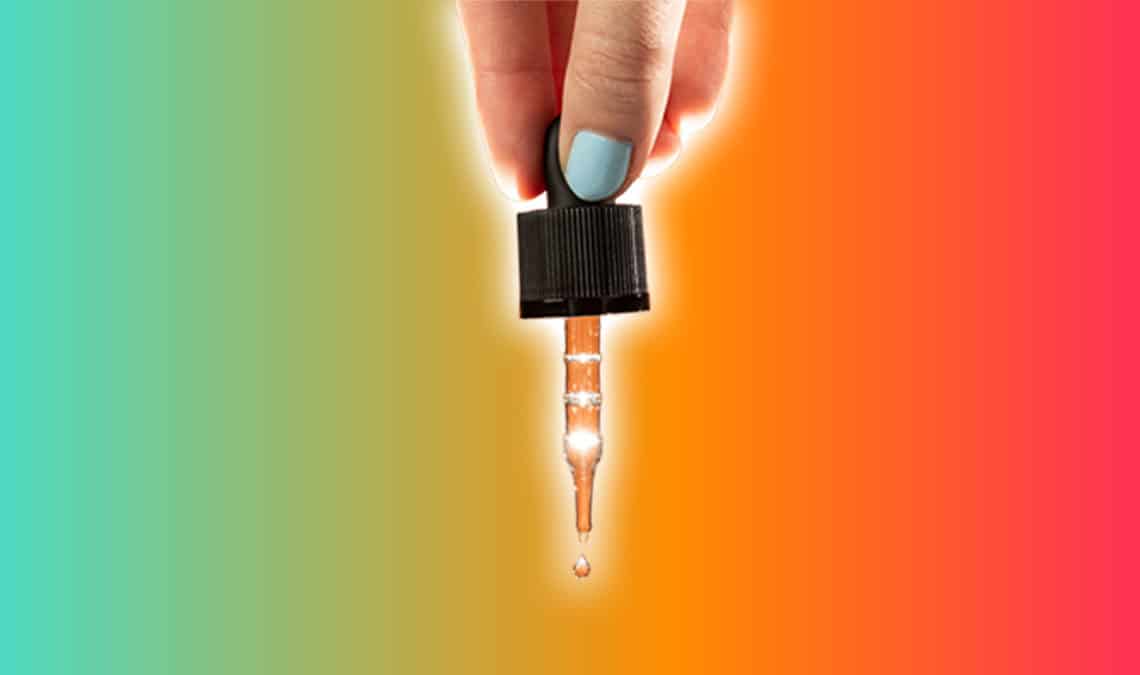
Psychedelic drugs are classically thought of as recreational drugs, used by hippies. In the last two decades however, people have started to realize that the hippies were on to something: psychedelics really do have a lot of potential as a tool for self-improvement.
Research shows that psychedelic drugs boost neural plasticity–the brain’s potential to change itself. Psychedelics can also cause long-lasting improvements in mood and subjective well-being. Because pf these effects, they’re now being seriously explored as therapeutic drugs for trauma healing.
But for many people, psychedelics serve a much more mundane purpose: productivity enhancement. In one of the brain-hacking crazes that periodically sweep Silicon Valley, professionals are taking small doses of psychedelics before or during work to enhance their performance.
It’s called microdosing, and by all appearances, there’s something to it. However, some companies are starting to cash in on the craze in ways that may be… less than honest.
So Just What Is Microdosing, Anyway?
As the name suggests, it entails using a very small dosage. Any psychedelic can be used, including LSD, ayahuasca, or psilocybin mushrooms. However, LSD and its derivatives are the most popular, both due to their availability and ease of dosing.
To give you an idea of just how small a dose we’re talking about, LSD usually comes in 100 mcg (that’s micrograms, not milligrams– it’s powerful stuff) tabs. That amount is enough to make you “trip.” 40 to 50 mcg is enough to cause light visual hallucinations, make sounds more interesting, and generally make concerts and museums more fun, without causing you to forget where you are.
A microdose, on the other hand, is 10 to 15 mcg– people usually default to 12.5 since that’s one eighth of a tab. At that dosage, your perceptions aren’t altered at all. There are no obvious effects, but people report that microdosing once every few days makes them happier, calmer, smarter and more productive–basically, everything is just a little bit better.
It sounds hard to believe, but there’s research to back it up. One study found that very low doses of LSD causes small alterations in mood and cognition, as well as increased vigor, in human subjects. The study tried several doses, and found 13 mcg to be the (roughly) ideal microdosage.
Another study in rats found that microdoses of DMT– the active ingredient in ayahuasca– improved mood and lowered anxiety in rats. This may be because psychedelics act on the serotonin system–indeed DMT is a close structural analogue of serotonin.
Psychedelics are unusual in this way–few drugs have positive effects at both very high and very low dosages, and in general most drugs don’t do anything when you take a small fraction of a “typical” dose.
The Problem With “Legal Microdosing”
Several companies are now offering “microdosing supplements” of various kinds. These companies usually imply (rarely if ever stated outright) that their product delivers benefits similar to LSD microdosing, or otherwise have acute psychoactive effects. We’re skeptical, though—for a few reasons.
For starters, psychedelics are illegal, even if you’re taking a very low dose. So of course, these “microdosing supplements” don’t contain the “active ingredient” of compounds that are microdosed such as LSD, psilocyben, and ayahuasca.
Some companies use ingredients that could be mistaken for psychedelics, but really aren’t. Ayahuasca, for instance, is made from a part of the shrub P. Viridis and part of the vine B. Capii. Some companies either use the uncontrolled part of P Viridis, or only use B. Capii, which is legal on its own.
Worse, some of these products simply don’t say what’s in them at all. Some also aren’t lab-tested or made in compliance with safety standards such as GMP.
Other products use non-psychedelic supplements such as reishi mushroom, which is perfectly legal because it’s not a psychedelic. In these cases, usually, the dosage is also too low to reap the actual benefit of the ingredient used. As well, the benefits of reishi supplementation do not include acute or immediate psychoactive effects.
A few companies do sell psychedelics, usually LSD analogues such as 1P-LSD, by marketing them as “research chemicals.” This is still ambiguously illegal, since it could fall under designer drug laws, so these companies typically operate out of other countries and take payment in Bitcoin to protect customer privacy. They’re different from the “microdosing supplement” companies.
The bottom line is, there isn’t really a workaround where you can microdose psychedelics without breaking the law, or at least skirting the edges of it.
Five Examples Of Companies Who Sell A “Fake High”
These are examples of companies who seem to imply you’ll experience psychoactive or mood-altering effects if you consume when they’re selling. We can not say definitively that you won’t experience an altered state after taking any of these products—after all, the placebo effect is real—we’re highly skeptical of their claims, based on our research.
Soul Drops Review
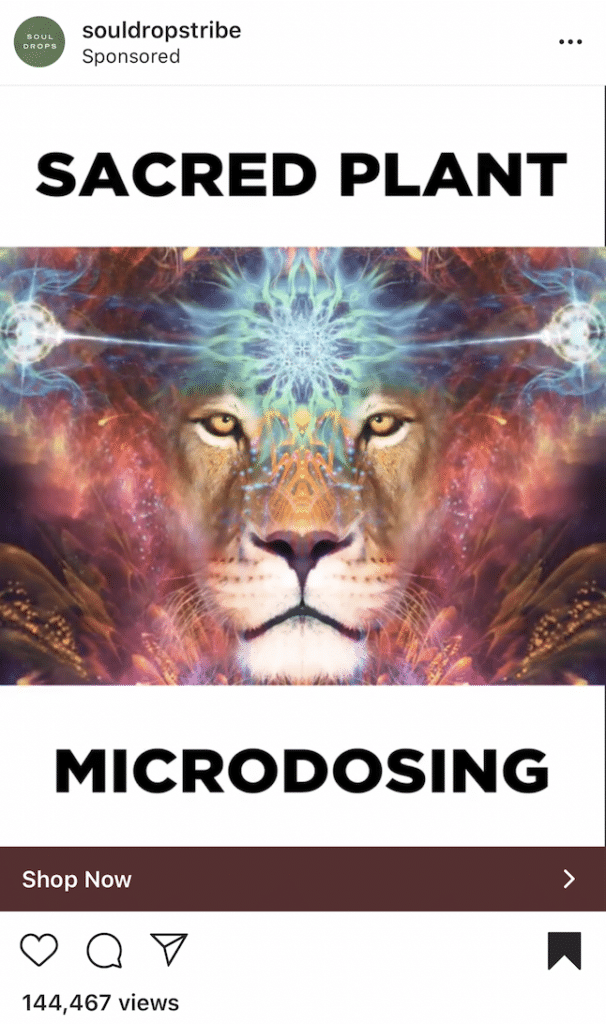
Soul Drops sells tinctures made from “sacred plants.” Their sacred plants are mostly things you’ve probably never heard of, like brahmi, golden root, and abuelo sanango. Nowhere on the website does it say how much of each ingredient is used.
The about page describes Soul Drops as a microdosing product, although this term isn’t used in the individual product descriptions.
Their disclaimer is mostly meaningless: Our products are not intended to diagnose, treat, cure or prevent any disease. These products offer an opportunity for you to work with sacred plant tools that empower you to heal yourself if you bring the right intention and energy to the work. This statement has not been evaluated by the Food and Drug Administration.
Soul Drops has a “Process” page, but its content is difficult to understand, and contains very few specifics about how the tinctures are actually made. Other pages on the site don’t offer many clues about how Soul Drops are made, either—it’s only clear that they’re made by some one named Vlada Talan in Southern California. Each product comes with a “warning” such as “Warning: may induce joy.”
Kin Euphorics
Kin Euphorics sells three beverages made with what it calls “euphorics”.
In the FAQ, they define euphorics as “a new category of nonalcoholic nightlife beverage crafted for conscious connection.” This is entirely different from the scientific definition of a euphoric–a drug that causes euphoria, a sense of intense pleasure and well-being.
They also define botanicals as “plants that are equal parts feeling, flavor, and function.” Actually, botanical just means plant, period.
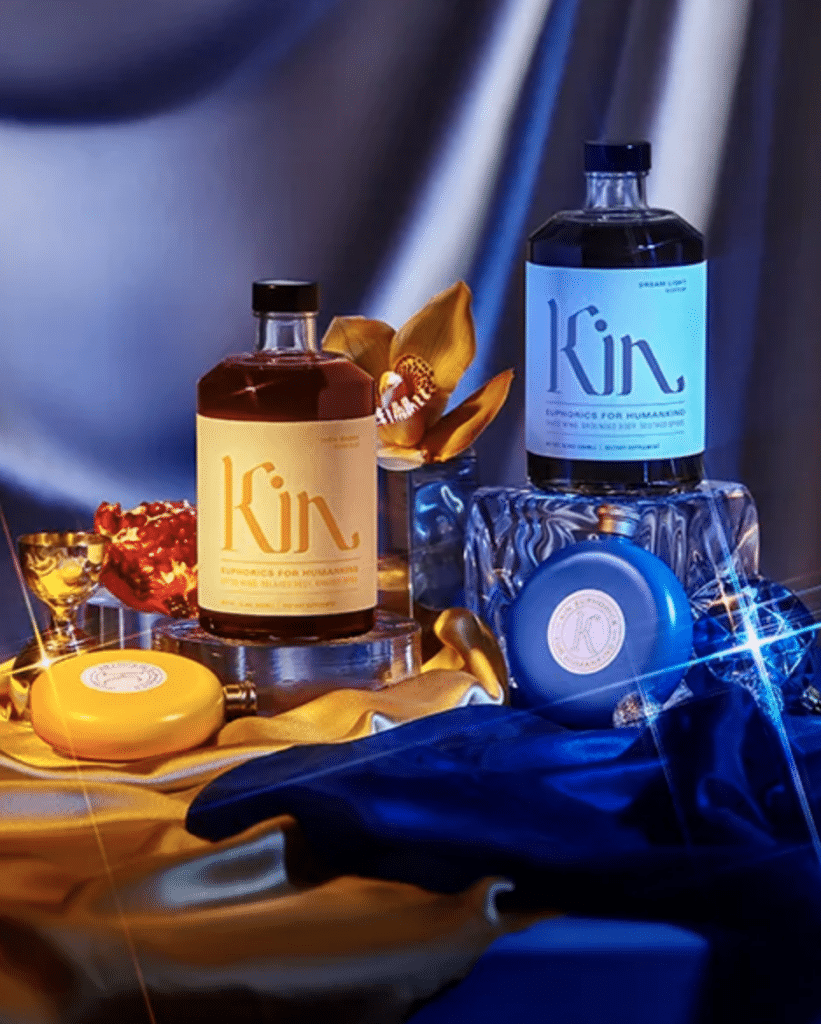
Their definition of nootropic is mostly correct, except they say their drinks use a microdose of 50 to 100 mg, without saying what ingredient they mean. The problem is, different nootropics have different dosages; dosage here is entirely relevant and important for helping customers decide if they want to try Kin out. Finally, they define adaptogens as drugs that either act as depressants or stimulants, as needed. Although adaptogens are real, research shows they don’t work this way.
Kin’s ingredients are linked to in their product pages. Most of the ingredients are simply for flavor, but the active ingredients are at least things that have real effects, like B vitamins, GABA, rhodiola rosea, or caffeine. Most don’t have specific quantities listed, instead being obscured by a “proprietary blend”. When the amount of active ingredient is obscured behind a proprietary blend, it’s impossible to know whether or not they’re dosed too low to have a real effect (an exception with Kin is caffeine, for which they specify its content, and the amount is effective).
These beverages sound like they taste good, and the presentation is certainly top-notch. But they’re basically just fancy sodas underdosed with dietary supplements.
Silo Reboot
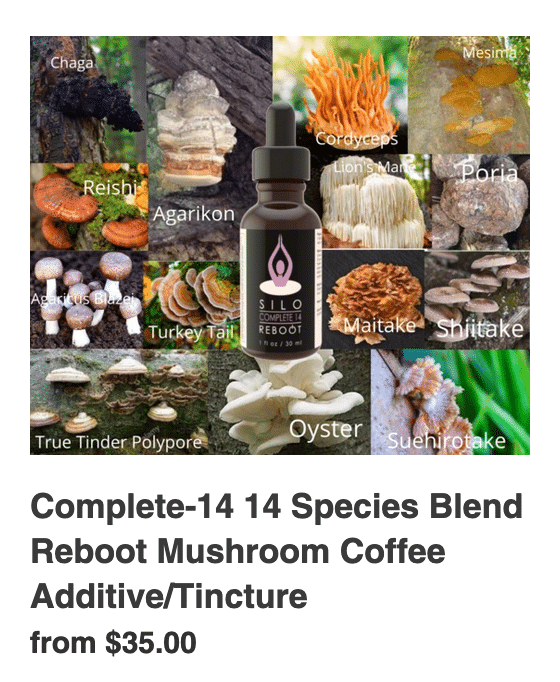
Silo Reboot sells mushroom-based tinctures. Not psychedelic mushrooms–they sell chaga, reishi, lion’s mane and turkey tail mushrooms, along with cordyceps, which is a fungus but not a mushroom. There’s the one product that has a blend of fourteen kinds of mushrooms.
They don’t claim to be selling psychedelics, but do bill it as “mushroom microdosing,” and seem to be banking on people not realizing that that term doesn’t apply to non-psychoactive mushrooms.
We’ve written about reishi and chaga mushrooms before. They really do have health benefits, and reishi might be a nootropic. The other ingredients Silo Reboot uses seem to have real effects too, other than some of the ones in that 14-mushroom blend.
But they don’t list dosages anywhere. And realistically, the dosages are probably too low. Reishi, for instance, has to be dosed at several grams a day. There’s just no way to dissolve that much reishi extract in one dropper’s worth of liquid, let alone enough of several different mushrooms blended together.
Chakra Openings
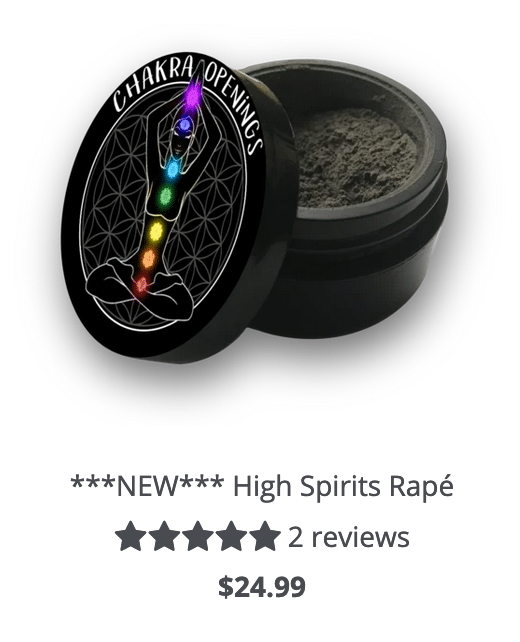
Chakra Openings, if you haven’t guessed, goes all-in on the new age angle. They sell “ayahuasca microdosing drops,” as well as a wide variety of rapés–very finely powdered snuffs.
The ayahuasca microdosing drops are made only from B. Capii, the uncontrolled half of ayahuasca. This doesn’t do much of anything without P. Viridis. It isn’t psychedelic in any way.
As for the rapés, they have names like High Spirits, Sacred Jaguar, and Savasana. What they don’t have is ingredient lists. There is literally no indication of what’s in them. The FAQ suggests they can or should be used in ayahuasca ceremonies, although they clearly don’t contain ayahuasca. They are claimed to “release spiritual illnesses” and “balance your energy.” The FAQ also says that it’s normal to experience “vomiting, spitting and bowel movements” while doing a “rapé session” because those symptoms are just “a deep release of long held sickness in the body, psyche, emotional field, and ‘soul loss’”. We don’t think we’re going out on a limb here by saying that taking this product seems like a really bad idea.
AyahuascaMicrodosing.com
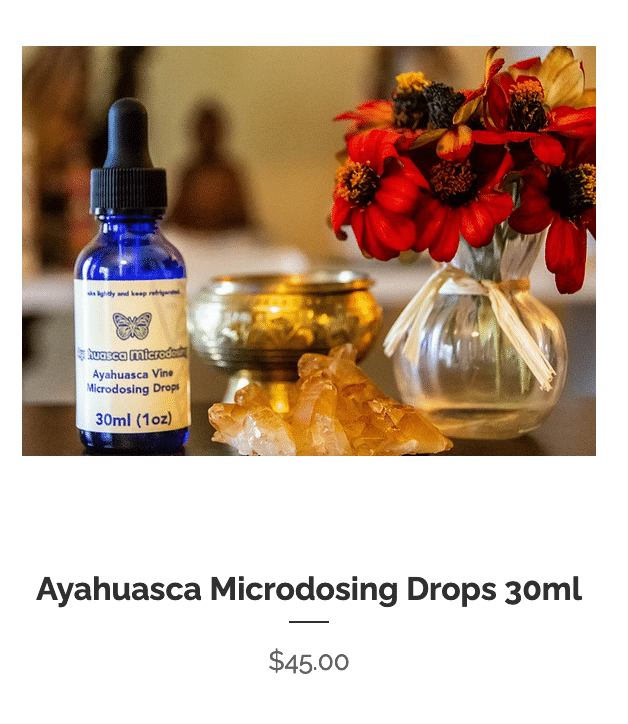
Unlike Chakra Openings, AyahuascaMicrodosing.com is clear about the fact that its microdosing drops don’t contain DMT. What they do contain is a little unclear though.
Their website says they’re made from “ayahusca vine,” which isn’t actually the name of anything. Presumably they’re made from B Capii, just like the Chakra Openings drops–that’s the legal component of ayahuasca, and the part that’s a vine. The dosage is not specified.
They also have two other versions of their microdosing drops with added ingredients–bobinsana in one, and cat’s claw in the other. Both of these have been used in Amazonian traditional medicine, but neither has been scientifically validated.
Bottom line: Psychedelic microdosing requires you to take illegal– or at least questionably legal– drugs. Companies which claim to let you microdose legally are actually selling something else–something which will have little if any effect.
Dropper in feature image by Evopure CBD on Unsplash.